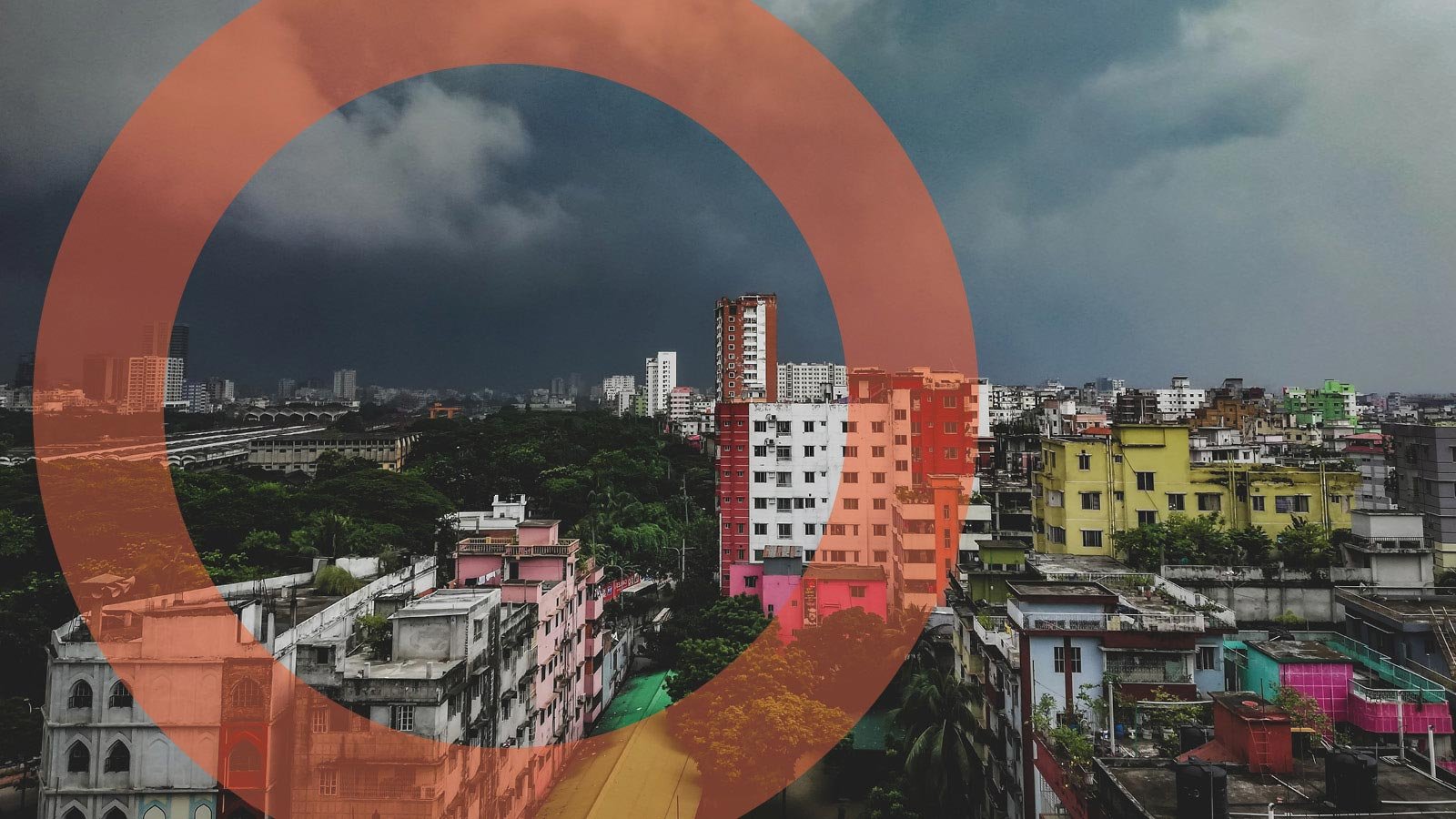
PUBLICATIONS CENTRE
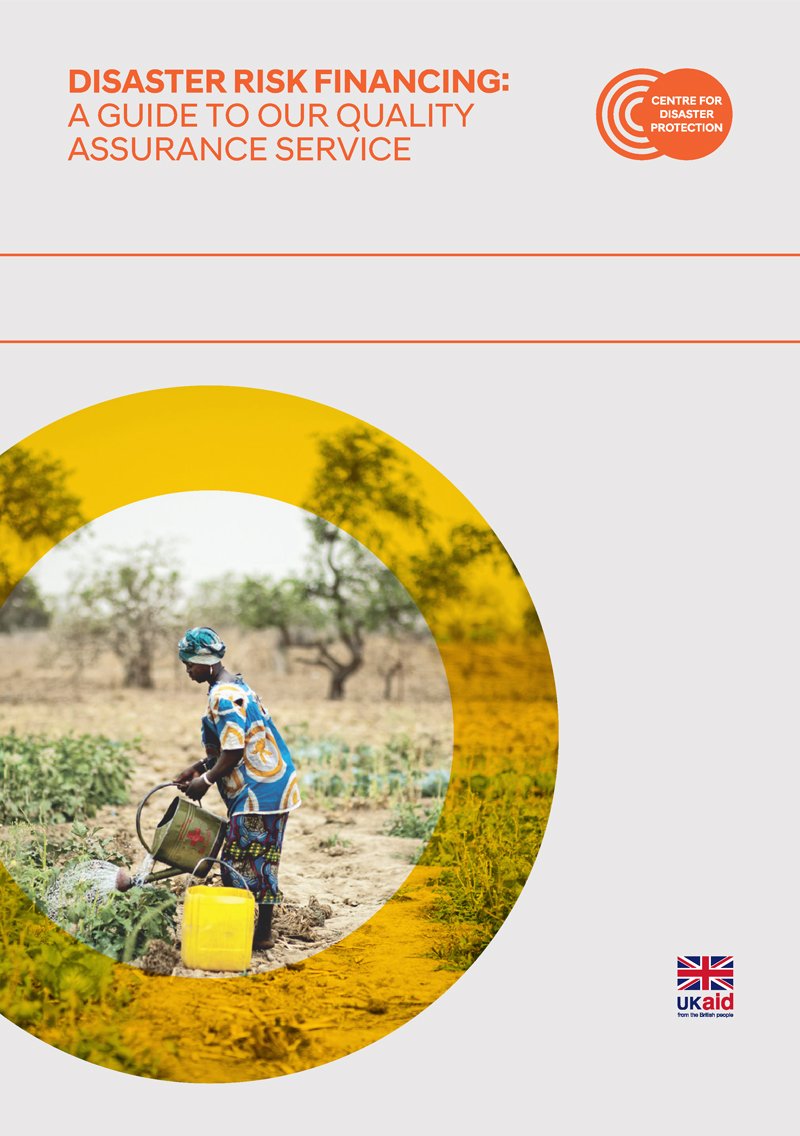
DISASTER RISK FINANCING: A GUIDE TO OUR QUALITY ASSURANCE SERVICE
This guidance note provides an overview of the Centre for Disaster Protection’s quality assurance service—a free-to-use and impartial service that provides governments, donors, multilateral organisations, and NGOs expert advice on the design and implementation of disaster risk financing projects.
Available in English, French, German and Arabic.
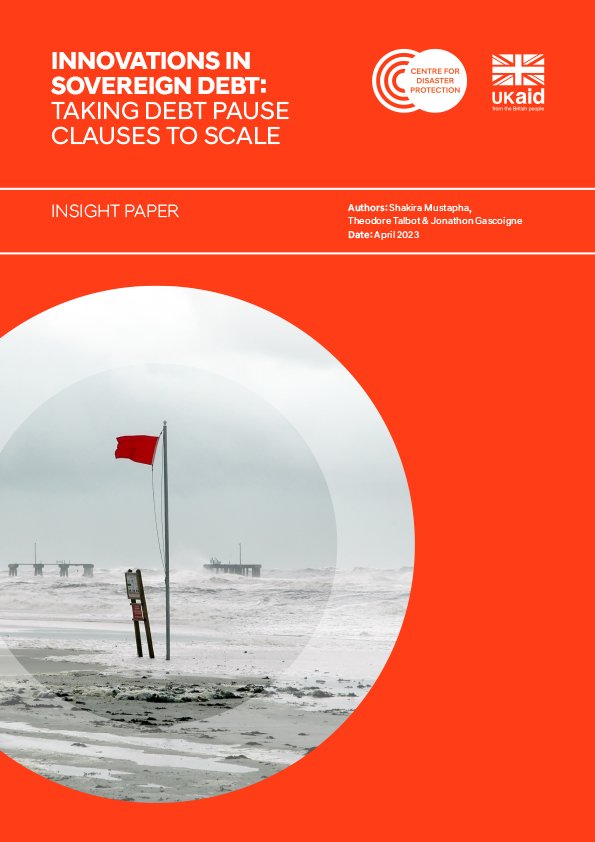
INNOVATIONS IN SOVEREIGN DEBT: TAKING DEBT PAUSE CLAUSES TO SCALE
This insight paper provides an overview of the key features of debt pause clauses, also known as climate resilient debt clauses. The paper highlights issues that may affect the incentives of sovereign governments and creditors to adopt them. It builds on confidential advice to the UK-chaired Private Sector Working Group by the Centre for Disaster Protection and has been informed by a private roundtable discussion with key legal, sovereign finance and development experts convened by the Centre in March 2023.

OPPORTUNITY COST OF COVID-19 BUDGET REALLOCATIONS: CROSS-COUNTRY SYNTHESIS
This cross-country synthesis study draws from four country studies, focusing on Albania, Ethiopia, Pakistan and South Africa, to calculate what the opportunity cost of budget reallocations was during the covid-19 pandemic. The research on which this synthesis is based took an exploratory approach to the methodology applied in each country to enable readers to learn from the process as much as from the results.

OPPORTUNITY COST OF COVID-19 BUDGET REALLOCATIONS: ETHIOPIA
This brief forms part of a cross-country study on the opportunity cost of reallocating budgets in response to disasters. The study, which this brief is based on, seeks to identify and quantify the opportunity costs associated with diverting funding from planned budgeted activities in Ethiopia, using the covid-19 pandemic as a case study to analyse public expenditure decisions, with a focus on what was not spent as a result of the pandemic.

OPPORTUNITY COST OF COVID-19 BUDGET REALLOCATIONS: SOUTH AFRICA
This brief forms part of a cross-country study on the opportunity cost of reallocating budgets in response to disasters. The study, which this brief is based on, seeks to identify and quantify the opportunity costs associated with diverting funding from planned budgeted activities in South Africa, using the covid-19 pandemic as a case study to analyse public expenditure decisions, with a focus on what was not spent as a result of the pandemic.
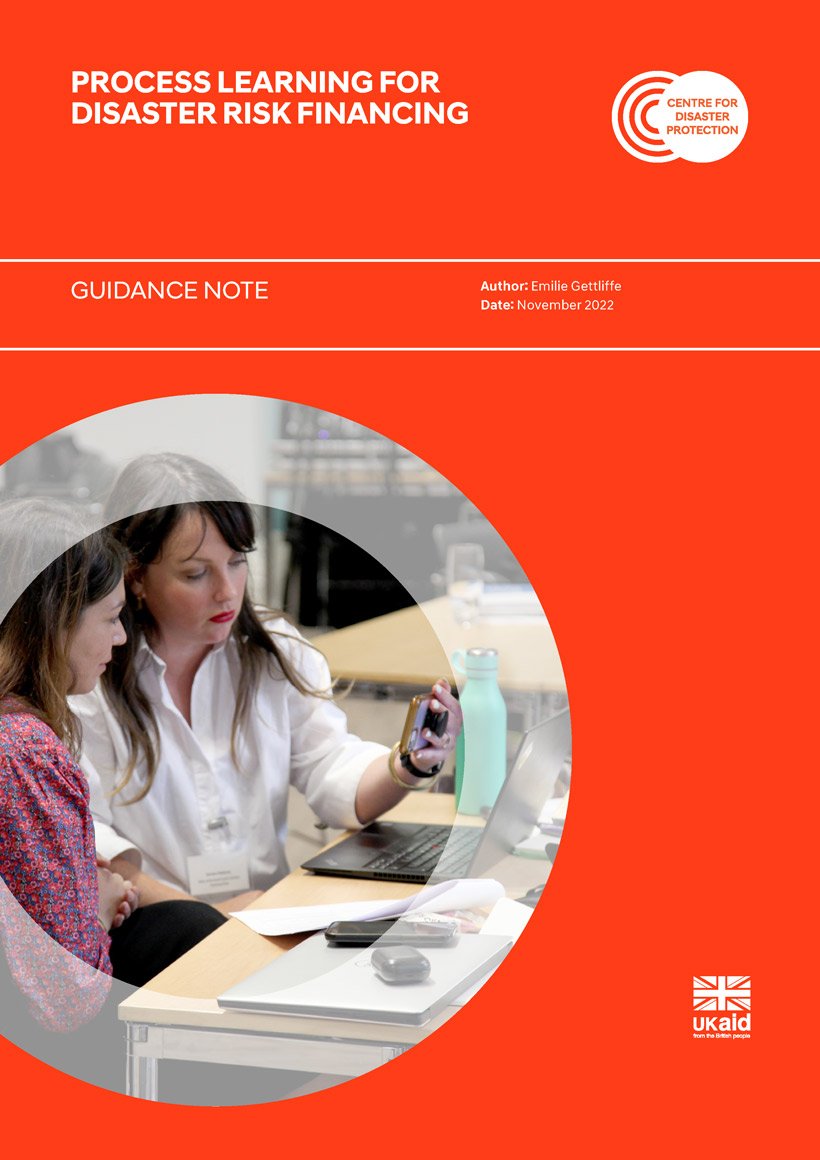
PROCESS LEARNING FOR DISASTER RISK FINANCING
This guidance document offers practical steps on how to capture lessons from DRF initiatives, providing an opportunity for real-time reflection and feedback for those designing and implementing DRF systems, as well as key partner organisations. The guidance is designed to help capture and communicate learning on what is working well, which assumptions are holding true (or not) and what needs to be adjusted or changed. This guidance builds on and complements the Centre’s ‘7 Keys to Unlock Effective DRF’. Process learning is particularly relevant to the characteristic of constant improvement – embedding scrutiny and learning into
DRF initiatives to ensure quality and effectiveness.
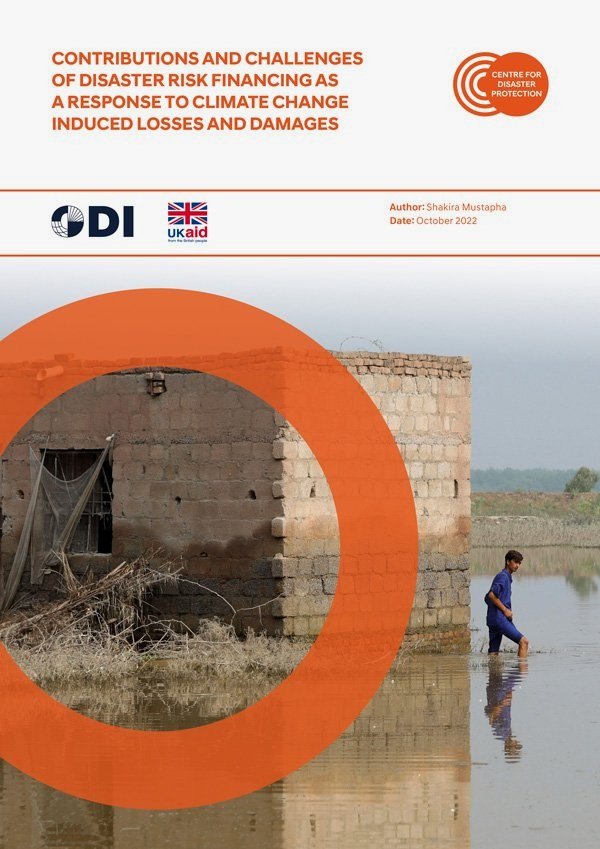
CONTRIBUTIONS AND CHALLENGES OF DISASTER RISK FINANCING AS A RESPONSE TO CLIMATE CHANGE INDUCED LOSSES AND DAMAGES
Human-induced climate change will continue to cause losses and damages, with vulnerable developing countries and communities that have contributed least to the climate crisis bearing the brunt of its consequences. Loss and Damage is the third pillar of the international climate regime in the 2015 Paris Agreement, alongside mitigation and adaptation.
In order to play a well-targeted and effective role, it is important to understand the applications and limits of Disaster Risk Finance as a response to climate-induced losses and damages. This paper explores how DRF instruments are being framed and understood within the panorama of Loss and Damage policy and finance agendas, highlighting areas of contention and sensitivity.
